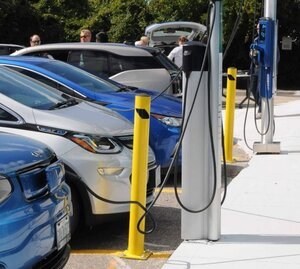SEATTLE, Feb. 23, 2021 /PRNewswire/ — Washington made history when the State House Transportation Committee voted late yesterday to advance legislation calling for all model year 2030 or later passenger and light-duty vehicles sold in the state to be electric vehicles (EVs). Introduced by Rep. Nicole Macri (D-Seattle), Clean Cars 2030 (HB 1204) sets the first 2030 gas car phaseout target in the country.

“This vote builds on our incredible track record here in Washington leading on big climate issues,” said Rep. Macri. “Clean Cars 2030 puts Washington on the road to powering its vehicles with cheap, clean, renewable electricity produced in-state and reduces the threat that oil and gasoline pose to our air, water, and health.”
“This is the first time in history that a state legislative body has voted to end the use of gasoline,” said Matthew Metz, co-executive director of Coltura, the nonprofit leading a coalition of organizations rallying around this bill. “By setting a target date for the transition to electric vehicles, Clean Cars 2030 builds clarity around the future growth of the state’s EV market. We’re not resting until this bill becomes law.”
Since Clean Cars 2030 was introduced, GM announced plans to sell only zero-emissions models by 2035, and Ford said it would only sell electric vehicles in Europe by 2030. Passage of the Clean Cars 2030 bill will serve as a model for other states to make an accelerated switch to EVs, putting more of the U.S. in line with countries worldwide pushing for a 2030 phaseout of gas vehicles, a critical step to meet urgent carbon reduction goals. It will also give the Biden administration leverage in negotiating with automakers on an accelerated timeline for a national gas car phaseout while providing added certainty to the industry that the all-EV future is near and that investment in it will be profitable.
More information about Clean Cars 2030 is available at www.coltura.org/washington-clean-cars.
About Coltura
Coltura is working to improve climate, health, and equity by accelerating the transition from gasoline and diesel to cleaner alternatives. It focuses on changing gasoline supply, gasoline demand, and gasoline culture through innovative legal and policy pathways, media, and art. Learn more at www.coltura.org.
Media Contact
Samara Villasenor
425-255-0890
292126@email4pr.com
SOURCE Coltura

